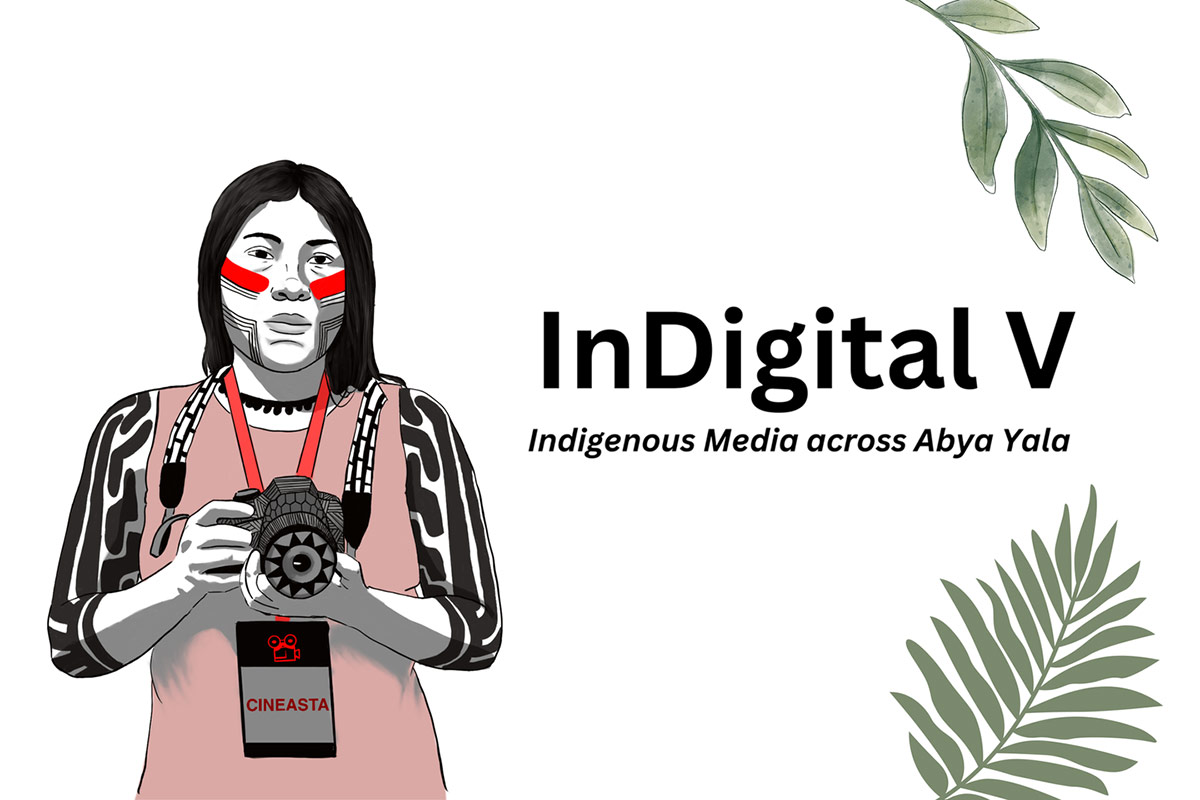In February 2025, the Center for Folklife and Cultural Heritage will co-present InDigital, a biennial academic conference that examines developments in Indigenous media across the Americas. To date, it is the only conference of its kind in the United States.
Taking place February 19 and 20 in Washington, D.C., InDigital V: Indigenous Media across Abya Yala will bring together Indigenous media makers, media trainers, and diverse specialists in film/media studies, media/visual anthropology, and Indigenous studies. Through intellectual exchange and publication of presentations, the conference advances scholarly knowledge of the field.
The conference will dovetail with the Smithsonian’s tenth annual Mother Tongue Film Festival, February 20–23, 2025, offering an opportunity for conference participants to view new Indigenous films in venues around the D.C. area. The festival is free and open to the public.
InDigital V sponsors include the Center for Latin American, Caribbean and Latinx Studies of Vanderbilt University; the Smithsonian Center for Folklife and Cultural Heritage; Middle Tennessee State University; the University of Maryland’s Center for Research and Collaboration in the Indigenous Americas; University of Cincinnati; and New York University's Center for Media, Culture and History.
Call for Abstracts
InDigital is currently accepting abstracts for conference presentations. Submissions are due Monday, December 2. Fill out the abstract submission form to apply.
Organizers are interested in a variety of topics and approaches covering media production, distribution, consumption, access, and archiving. Focus may be on a particular technology or platform, or how they interact to form complex media ecologies. We are especially receptive to submissions about:
- Accessibility and critical disability studies
- Data sovereignty
- Challenges of media work in a changing climate
- Indigenous media and AI, algorithms, surveillance, and censorship
- Media making in precarious funding/support landscapes
Other topics may include, but are not limited to, how different groups may engage media as they:
- Watch, comprehend, create, and otherwise fashion texts, images, and memes on a variety of devices and platforms
- Build websites to archive cultural materials
- Construct social networks in cyberspace among themselves and other groups
- Utilize cell phones
- Revitalize languages
- Encourage intergenerational dialogue and cultural transmission
- Document events for political leverage
- Produce media collaboratively with non-Indigenous partners
- Explore new marketing or consumption opportunities
- Innovate in conceptualizing cultural identity through media
For reference, please visit the InDigital IV website from 2023. Contact Amalia Córdova, supervisory curator of world cultures, at CordovaA@si.edu for more information.


